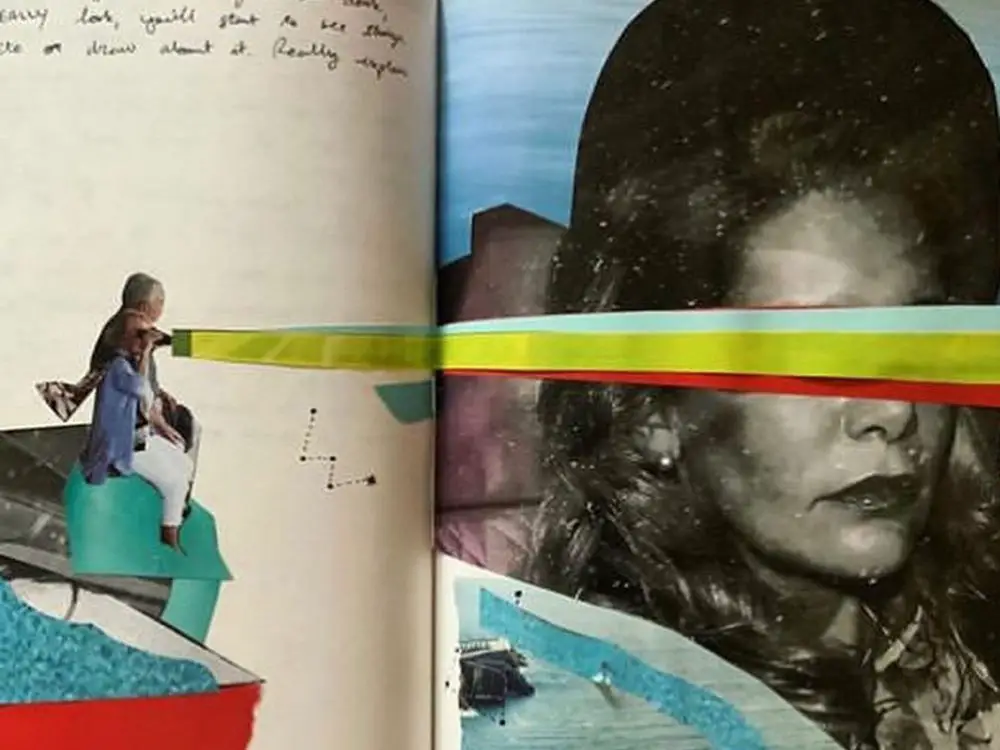We all know the absolute terror of facing a blank page: so clean, so fresh, so full of paralyzing possibility. Often enough, our answer to that fear is procrastination. I’m not feeling inspired right now, we say to ourselves. I’ll certainly write later.
Spoiler alert: You won’t write later. The fear of the blank page is ever-present, and unless you learn to overcome that obstacle, you’ll never write. The good news is that there’s no better time than now to conquer that blank page, to scribble out all your angsty quarantine thoughts all over that clean, white surface, to experiment and have fun with your writing. The even better news is that you don’t have to write alone.
Suleika Jaouad’s Isolation Journal is a 30-day project that started on April 1, during which the author will send a prompt — many of them contributed by her various writer friends — directly to the participant’s email, every single day.
https://www.instagram.com/p/B-anLyMg5sD/
“Wait,” I’m sure you’re thinking, “April 1 has already come and gone.” Yes, but it’s never too late to sign up. You can participate for the remainder of the month, or you could access the prompts that have already been sent and start from Day 1.
Jaouad’s inspiration for this project, as she writes on her website, was the time she spent confined to a hospital bed receiving treatment for leukemia.
“There was one thing I did every day with my friends and family during that time that kept me grounded, hopeful, and connected to those around me,” she writes. “Each of us did a small creative act, every day, for a hundred days. We called it the 100 Day Project.”
And now, as the world hibernates, we can all keep grounded and hopeful by committing our own acts of creation. Although the prompts are mostly geared toward writing — hence the “journal” in the name “Isolation Journal” — their open-ended nature allows for the inspiration of other creative projects. Perhaps you’d like to write a song based on the prompt, or create a piece of art, or choreograph a dance. Whatever your creative medium may be, these prompts are for you, so use them as you will.
To give you an idea of the kind of prompts participants usually receive, my favorite prompt so far was by Lily Brooks-Dalton on Day 5, encouraging us to write about whatever we observe through the nearest window.
“This can be a description of what’s unfolding right now, or you can branch off into a fictional reality,” the prompt goes. “Maybe the window is open and sounds, smells, and a breeze are slipping in; maybe there are people in the street, maybe it’s empty. Either way, record the moment.”
And that’s the essence of the Isolation Journals: recording the moment, giving attention to the present and appreciating what we have rather than all we’ve had to sacrifice. And as I sat at the window, writing my response to this prompt, the sun was setting and the clouds were glowing.
“I can’t see much, really; I know how much bigger the world actually is. But maybe it would be better not to know, to ignore that fact as best I can, because for now, for now (and not forever), this little rectangle of the world, with its trilling birds and budding branches and soft pink sky, is all I have. And it is enough.”
Your creation does not have to be a masterpiece. If there’s anything I’ve learned from about two years of consistent journaling, and more than two years of writing in general, it’s that sometimes, you will produce complete and utter crap — and that’s a-okay. In fact, that’s how you become better, little by little, inch by inch, word by word.
https://www.instagram.com/p/B-w1ewmgPln/
Though you can use the journal as a method to improve your writing skills (or other creative abilities), you certainly don’t have to — remember that you don’t have to be productive all the time. Instead, you could use your journal as a form of relief from anxiety or stress, those unpleasant sensations that seem to be constantly pressing down on us these days.
According to HuffPost, allowing your journal to devolve into a stream of consciousness can be especially beneficial in a number of ways, including increasing your emotional intelligence, boosting memory and comprehension and reaffirming your self-confidence.
As Psychology Today points out, however, we should be careful to monitor our journaling habits so that they themselves don’t become harmful to our mental health. If your journal causes you to retreat fully into yourself or sink into self-pity, the act of journaling can actually have a negative effect on both your behavior and your psychological well-being. This is especially relevant considering the difficult circumstances surrounding COVID-19, which make it all too easy to focus on the abundant negatives rather than the slim positives.
The Isolation Journal, with always-positive prompts and a supportive community journaling alongside you, can help you to stay on the right track. You can share your creations on social media if you wish, or just keep to yourself and observe the creations of others. You can quickly scrawl down random, jumbled thoughts provoked by the prompt, or you could take your time, choose your words deliberately and reflect attentively. I like to land somewhere in between the two, closer to one side or the other depending on my mood. It can be a fun exercise to assume one writing style one day, and switch to another the next. There are so many ways to experiment and get creative with your Isolation Journal — and that’s the whole point!
And so, I urge you to sign up and journal with me, and with thousands of others around the globe. Even when we are all at least six feet apart, Suleika Jaouad has found a way for us to be creative together, completely for free. Join us in overcoming the wicked curse of the blank page, and taking a moment to reflect on these strange times in which we are all living.

















